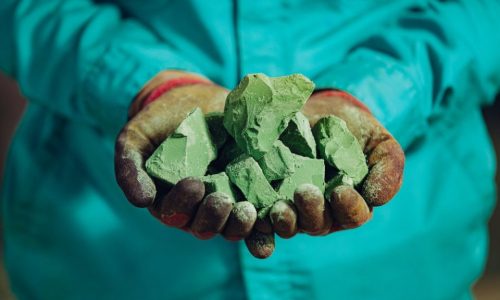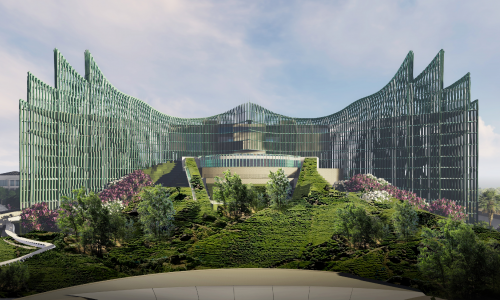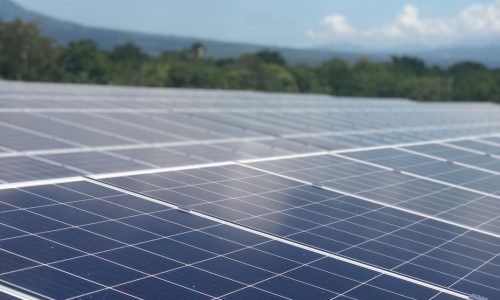The cosmetic industry in Indonesia is growing at a fast pace, due to the rising consumers’ demand and an expanding market for cosmetics. On average, the per capita consumer spending on cosmetics and toiletries in Indonesia amounted to US$ 20.2, statisca.com reported. The value is predicted to increase by US$ 7 by 2024, indicating sustained growth of the market.
Trends in beauty industry has also been boosted by the increasing popularity of South Korean beauty products, or K-beauty, in the market. In 2020, Indonesia ranked second among the countries with the highest K-beauty popularity. Besides, around US$ 38.5 million worth of beauty and skincare preparation imports in Indonesia was from South Korea, accounting for the second largest import value in that segment that year.
However, local brand Wardah – the pioneer of halal cosmetics and skincare products in Indonesia – recorded the highest sales among other leading cosmetic brands in Indonesian online stores, with 7.37 million items sold as of January 2020.
Data from the Statistics Indonesia (BPS) reported that the cosmetics industry, which encloses the pharmaceutical, chemical and traditional medicine industries, grew by 9.61% in 2021.
Additionally, the Food and Drug Monitoring Agency (BPOM) also recorded an increase in the number of cosmetic companies by 20.6%. From 2021 to July 2022, the number of cosmetic industry players increased from 819 to 913, 83% of them are small- and medium-enterprises (SMEs).
5 Indonesia’s beauty giants
The growth of beauty products has made cosmetic companies able to offer a wide range of products, and the formulas for beauty products are constantly evolving with the changing trends. These are 5 beauty product giants:
- PT Paragon Technology and Innovation
Paragon is one of the major Indonesian cosmetic manufacturing companies and the owner of several top brands including Wardah, Make Over and Emina.
Founded by Nurhayati Subakat in 1985, the company initially operated under the name PT Pusaka Tradition Ibu. Today, Paragon employs around 7,500 people and produces over 95 million products each year. The company’s annual revenue was US$ 216 million in 2021, according to rocketreach.co.
- PT Mustika Ratu Tbk
Mustika Ratu is an Indonesian company specializing in the production of traditional herbal and cosmetic products. Founded in 1971 by Mooryati Soedibyo, the company is one of the largest and most well-known cosmetic companies in Indonesia.
Its product portfolio includes a wide range of personal care items, such as skin care, hair care and body care products, that use natural ingredients such as herbs, spices and traditional plants. The company has a strong reputation for high-quality products and traditional Indonesian heritage.
At the end of financial year 2021, Mustika Ratu generated gross profit of IDR 196.8 billion (US$ 13.2 million) and generated net sales of IDR 326.8 billion, statista.com reported.
- Martha Tilaar Group
The Martha Tilaar Group is a leading Indonesian beauty and wellness company founded in 1975 by Martha Tilaar. Two years later, Tilaar and her partners Bernard Pranata and Theresia Harsini Setiady founded PT Martina Berto, which produced cosmetics under the brands of, among others, Sariayu, Biokos and Mirabella.
The company offers a wide range of personal care products, including skin care, body care and spa treatments as well as cosmetic products. It is known for its use of natural ingredients and traditional Indonesian techniques in its products. The firm is committed to promoting the traditional culture of Indonesia through its products and services. It also involves in education and research and operate several schools and training centers focused on the beauty and wellness industry.
At the end of 2021, Martina Berto generated net sales of around IDR 210.5 billion and earned gross profit of around IDR 66.6 billion.
- Avo Innovation Technology
AVO Innovation Technology is a beauty and skincare company that operates several eco-friendly beauty and skincare brands, such as Avoskin, Lacoco and Looké Cosmetics.
The company has focused on using natural and environmentally friendly ingredients in its products and has reported a rapid growth since its launch in 2014.
- PT Gloria Origita Cosmetics (GOC)
PT. Gloria Origita Cosmetics (GOC) is one of cosmetic companies that produce a variety of cosmetic, personal care and antiseptic products.
It has created a collection of high-quality products under various brands, including Purbasari, Kanna, New Cell, etc.
Opportunities in cosmetics industry
There are several opportunities for the cosmetic industry in Indonesia, including:
- Indonesia has a growing middle class with increasing purchasing power, creating a large and growing market for cosmetics and personal care products.
- The country has a large and young population, with a huge percentage of them being in their prime spending years.
- Consumers are becoming more conscious of their appearance and are investing more in personal care and beauty products.
- The growth of e-commerce and modern retail helps the companies to have alternative distribution channels to reach consumers.
- The government has been supportive of the cosmetic industry and has implemented policies to encourage investment and support the development of the industry.
- Eco-consciousness drives the demand for natural cosmetic products, offering business opportunities.
Risks in cosmetics industry
However, cosmetics industry also comes with several risks, including:
- Cosmetics industry is heavily regulated with strict rules on product safety, labeling – including the required halal label – and advertising. Complex licensing and registration processes must also be navigated to bring products to market.
- The industry is competitive with many domestic and international companies fighting for market share. Companies must offer quality products at affordable prices and keeping up with industry trends and advancements.
- Cosmetics industry relies heavily on the availability of raw materials and ingredients, and disruptions to the supply chain can negatively impact production and profitability.
- Since the industry is innovative, companies must protect their intellectual property, like trademarks, patents and trade secrets.
- Constant changing in consumer preferences heavily influences the industry. Companies must stay current with trends to remain competitive.









